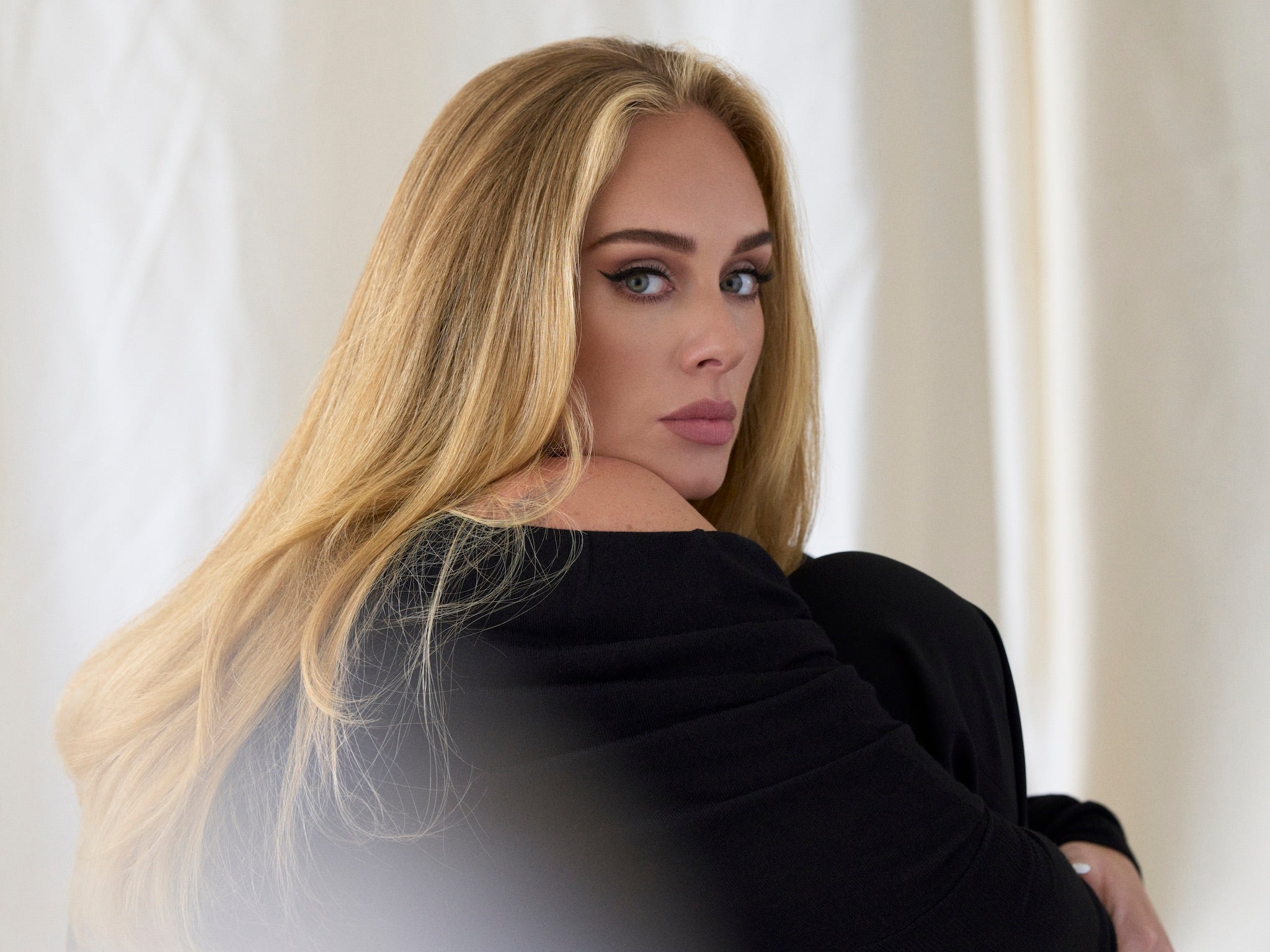Adele review, 30: Patron saint of heartbreak licks her wounds in a divorce album that takes risks
Across a more diverse fourth record, the returning singer braids in glimmering moments of self-affirmation amid the typical tirades against herself

No one makes heartbreak as relatable as Adele. Ever since she was discovered aged 18 on Myspace in 2006, the Tottenham-born singer has made weepy, diaristic soul music her métier. She gathers pain – hers and ours – and spins it into songs that go diamond or platinum. It’s an alchemy she has honed over 15 years and just three records.
The songs themselves are good. Grounded in pathos, they tend to be handsomely crafted ballads about love and its various agonies – but it’s her vocals that sell them. Adele possesses that perfectly imperfect voice, gargantuan and frail all at once. It’s epic without resorting to showy, melismatic affectations. It yawns into unexpected shapes and makes intonation fun. But there are many great vocalists out there who don’t attract the same mass adoration. There’s something else about Adele that makes her so endearing, something that preternatural vocal cords alone can’t explain.
The answer perhaps lies in her endearing online presence – no matter how small that presence might be. Or maybe because of that. In the rare glimpses we do get, we see a celebrity who doesn’t care much for celebrity. She is crass and prone to throwing her head back in an open-throated cackle. She’s called Beverly Hills home for years now, but her snack of choice is still a pack of soggy Walkers Ready Salted swimming in Worcestershire sauce. Despite it all – the Grammys, the millions, the mansions – Adele is still the same woman from north London. She’s just like you and me. It’s why we got all choked up when she choked up during her 2011 Brits performance. It’s certainly why 10 million people tuned in to watch her recent sit-down with Oprah. We feel what she feels, and her songs make it clear she feels what we feel too. Across 19, 21 and 25, Adele has demonstrated a knack for explaining our feelings to us. Now she’s back and ruminating on divorce – and the start of something new.
For a singer who has built a career from the ashes of emotional bedlam, the opening of 30 is surprising. A twinkly orchestra invites the listener into some misty, enchanted glade. It’s muffled but unmistakable, like hearing the opening credits of an old-timey Disney movie playing in the next room. The song – a composition inspired by Judy Garland – follows suit. Next, though, is “Easy On Me” and any notion that 30 will be a happy jaunt down a yellow brick road is quickly dispelled. A tornado of self-revelation instead awaits.
Lyrically, 30 is candid. Adele has always been forthright – every bad feeling you’ve felt, she has confessed to feeling too – but there is a new immediacy here. Earlier songs spoke in platitudes and broad strokes. They projected human emotions onto the natural world – a shallow valley, a shelter in the rain, the river running nearby where she grew up. But the singer of 30 is more literal. Adele unmediated. Adele unfiltered. Adele opening her Notes app at 3am mid-anxiety attack and jotting down whatever comes to mind. “I can’t get no relief, I’m so tired of myself/ I swear I’m dead in the eyes,” she sings on the aptly titled “Cry Your Heart Out”. Elsewhere, she laments that “I am my own worst enemy/ Right now I truly hate being me.” She takes a different approach to fellow expert of heartache Taylor Swift who instead wraps real-life details such as a “red scarf” around her songs like a bow in a gift to her fans – but the effect on the listener is the same: emotional connection. And then devastation.
Adele said she recorded 30 with a hope that it might help her nine-year-old son Angelo understand her divorce from his dad. “My Little Love” is the most potent example of that goal. It is an unlikely lullaby, a near seven-minute concoction of Seventies groove and heady string arrangements with top notes of R&B. Adele admits that “mama’s got a lot to learn” in that low register of hers, like smoke pluming from a lit cigarette perched on an ashtray. Verses are interspersed with teary voice notes she recorded with Angelo at her therapist’s suggestion. They’re disquietingly intimate glimpses into the life of a famously private person.
She has happier love songs, too. Unlike her previous records, which can be wearisome in excess (all that sadness is a lot to take in, even if it is gorgeously sung), 30 is more diverse in its psychological palette. The Errol Garner-sampling “All Night Parking” is a sumptuous paean to the intoxication of a new relationship. But it’s the stomp-and-clap hook of “Can I Get It” that feels most unsettling. The stamp of Swedish super-producer Max Martin and Shellback is more obvious than it was on “Send My Love (To Your New Lover)”. Whistle flourishes call to mind the moment in A Star is Born when Lady Gaga’s character performs that song about seeing a great ass in a pair of jeans. (It’s worth noting this comparison isn’t necessarily an insult in my book.)

The album flickers with careful optimism. “You better believe I’m trying to keep climbing,” she croons on “I Drink Wine” – a track that sounds exactly as the title suggests. Upward swirling piano and velvety vocals occasionally snag like a bit of sediment rolling around the bottom of an empty glass. But “trying” is the operative word here. Across the album, Adele attempts to recover from hurt. To big herself up after beating herself up. That tension forms the structure of “Hold On”. The track begins business as usual. “Have I not learned anything?” Adele reproaches herself over gospel-y organs. But just when you think you can’t stomach any more self-loathing, a choir bursts into an ecclesiastic refrain, reminding her to “hold on/ You are still strong”. The trope shows up again on “Cry Your Heart Out”.
Between the typical tirades against herself, Adele braids through moments of affirmation. Like a forlorn teenager, across the length of 30, Adele plucks the petals off a daisy but asks a different question: Do I love me? Do I love me not? Where other records have asked for audience participation – for us to fill in the blanks of broad narratives with our own pain – 30 is a conversation between Adele and Adele. She’s her own fairy godmother, whispering incantations of happiness in her own ear and hoping they take.
Join our commenting forum
Join thought-provoking conversations, follow other Independent readers and see their replies
Comments


Bookmark popover
Removed from bookmarks